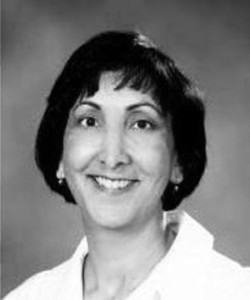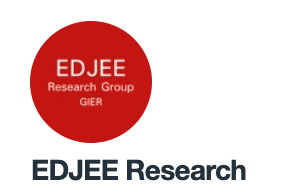Professor Parlo Singh has dedicated her career to working in the field of primary schooling, particularly working with schools serving culturally and linguistically diverse communities in areas of high socio-economic poverty. She sees schooling institutions as pivotal in disrupting intergenerational cycles of poverty.
Parlo says:
“My parents didn’t speak English as a first language and their own education in Punjab, India had been disrupted during the British partition of India. I learnt English at school and continued to speak Punjabi at home, and navigated bicultural and bilingual practices at home and school. I felt that education gave me lots of choices and options that had not been available to my parents’ generation. So, I became interested in the intersection of cultural and language diversity and poverty and schooling. All my projects have been investigating ways that schools can interrupt cycles of poverty.”
 Parlo’s aim has been to work with teachers and school leaders, not do research on them. This work began with an ARC linkage research project commencing in 2009 which received a number of awards:
Parlo’s aim has been to work with teachers and school leaders, not do research on them. This work began with an ARC linkage research project commencing in 2009 which received a number of awards:
Parlo says:
“With the standardisation of teachers’ work with national testing, prescribed curriculum and teaching approaches, teachers have less professional independence and autonomy. The ARC Linkage project worked with teachers to build professional capacities, principally around diagnostic assessment, designing curriculum and pedagogies, and evaluating the impact of such pedagogies on educational outcomes.”
This ARC Linkage project had a profound impact on the way that Parlo thought research should be undertaken with teachers and school leaders. Part of the problem in relation to addressing educational disadvantage are the short- term government policy solutions based often on the electoral cycle.
At the same time, some educational policies have enduring legacies, such as the standardised global education reforms around international and national testing. These neoliberal education policies have redesigned schooling systems and redefined the purposes of education, namely what education is about and for whom.
Parlo is determined that research projects should not be part of the education/poverty problem. This meant ensuring research endurance or sustainability by working with the same clusters of schools for the long duration, which meant working with clusters of schools over several research projects.
Typically, Australian Research Council funding for projects is for three years. Parlo says:
“We have used a collaboratory model of research, where researchers work with the teaching team to understand the problems, and how they can bring in resources to work collaboratively on that problem. So, it’s like a living laboratory, and everyone has a role in terms of bringing their expertise and resources parents, teachers, principals, researchers.”
Parlo says:
“It was important to build on the research work undertaken in one project in further or subsequent research projects. While most research projects do this, the aim was to work in the same place, or with the same cluster of schools to get a deeper understanding of the complexities of intergenerational, structural factors that produce poverty. It would also mean developing long-term commitments with people and in so doing, developing respectful trusting relationships. It is only through such trusting relationships that sustainable change can happen.”
Part of this work is disrupting the patterns of power relationships in research, a positive new direction for education research. Schools have noted how refreshing it is to see research used in a different way, to open thinking and conversations.
Parlo says:
“All research (including anthropology) has a colonial past. So, it is not outside of the power relationships that produce inequalities that we are criticizing. The question is how do you de-colonize research and your own power relationships so that you stand alongside the teachers so you can co-research? Decolonisation, for us, means working with teachers to find ways of working with complex, wicked problems, problems that do not have easy solutions or quick fixes.”
Parlo shares her learnings and knowledge in a myriad of ways, supervising HDR students and continuing to work on small and large scale research projects that focus on the central role of schools in generating democratic educational futures. This includes co-supervising the EDJEE research group.
Parlo says:
“If we didn’t have schools, what would happen to the notion of democracy? Schools are often a pivotal focal point for the community. They introduce families and children to many more options and choices than they would otherwise have.”
Parlo says:
“I love my work because it allows me to grow in my thinking, to see things in a different way, to see new connections. If this work has the effect of shifting thinking, even just slightly, then I feel hopeful this might lead to a change in practices.”
This work is important in sustaining hope for educational futures.
Read more about Parlo’s work on her Griffith experts profile and below.



